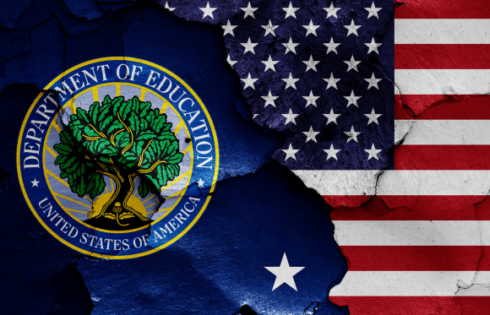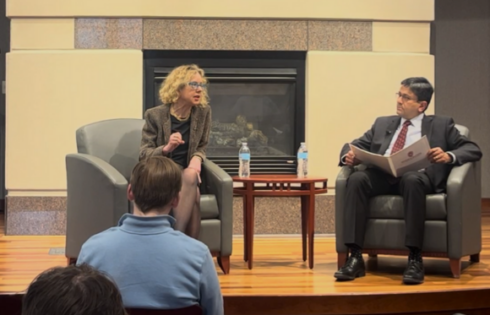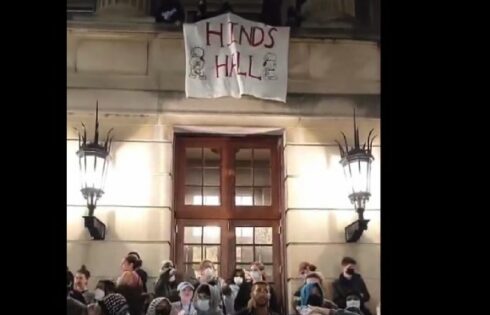
A group of Rhode Island high school students wants a federal appeals court to rule that an “adequate” civics education is a constitutional right, and that the January 6 “insurrection” in Washington DC was a result of a lack thereof.
The students claim a decision on the matter is “urgently needed” because the 1/6 “mob” was “motivated by a fundamental misunderstanding of the congressional role in counting electoral votes.”
One student involved in the original 2018 suit, now a senior, claimed he “hadn’t been exposed to even the basics of how to participate in democratic institutions.”
Parent Moira Hinderer joined the plaintiffs because her 10-year-old daughter didn’t know what a judge and court were. “I just feel like a lot of that is on me as a parent, to try to explain these concepts to the best of my ability and show her how things work,” she said.
The defendants include Rhode Island Governor Daniel McKee, the state education commissioner, and other education officials. Their lawyer said the case should be dismissed based on Supreme Court precedent: “There’s no fundamental right to education under the U.S. Constitution.”
Judge William Smith had agreed, and dismissed the students’ case a year ago. “While it is clearly desirable, and even essential, for citizens to understand their civic responsibilities, it’s not something the Constitution contemplates or mandates,” he said.
Students’ attorney Michael Rebell, a Columbia University law professor and executive director of the school’s Center for Educational Equity at Teachers College, doubled down on the 1/6 aspect.
ALERT: Check out our new Campus Cancel Culture Database!
“Those who took part in the Jan. 6 insurrection and even those who may have shown up there and supported a position but they weren’t violent, I don’t think they had any understanding of how the Electoral College works, what the role of Congress is vis-a-vis the president,” Rebell said. He added he’ll appeal this case all the way to the U.S. Supreme Court if need be.
Ironically, the students’ original suit noted poor civics education disproportionately affects minority and low-income students, which doesn’t exactly help with the issue of the 1/6 “insurrectionists” (who were mostly white and middle-class).
Overall, this “case” is merely progressive political hackery masquerading as a legitimate lawsuit. The noted excuses above indeed are rather pathetic. A high school senior doesn’t know anything about participating in American democracy? In the internet age? How tough is it to Google “how to register to vote in [fill in state]” in addition to “where do I vote?”
As to Mrs. Hinderer’s point, yes — that’s what being a parent is all about. You are your child’s first (and hopefully, best) teacher. If you choose to cede that responsibility to someone else, don’t be disappointed.
If Rebell, et. al. really are interested in tying the January 6 protest into “adequate” civics education, then make sure students also learn about the 2005 Carter-Baker Report regarding election integrity — like how, among other things, mail-in ballots and ballot harvesting (used widely in the 2020 election) are susceptible to fraud. Further, detail for students how Hillary Clinton and the Democratic Party instigated the fiction that Donald Trump’s 2016 election was enabled by Russia — and how that affected American democracy.
Just to be fair.
MORE: Students demand resignation of prof who attended January 6 Capitol protest
IMAGE: UfaBizPhoto / Shutterstock.com
Like The College Fix on Facebook / Follow us on Twitter







Please join the conversation about our stories on Facebook, Twitter, Instagram, Reddit, MeWe, Rumble, Gab, Minds and Gettr.